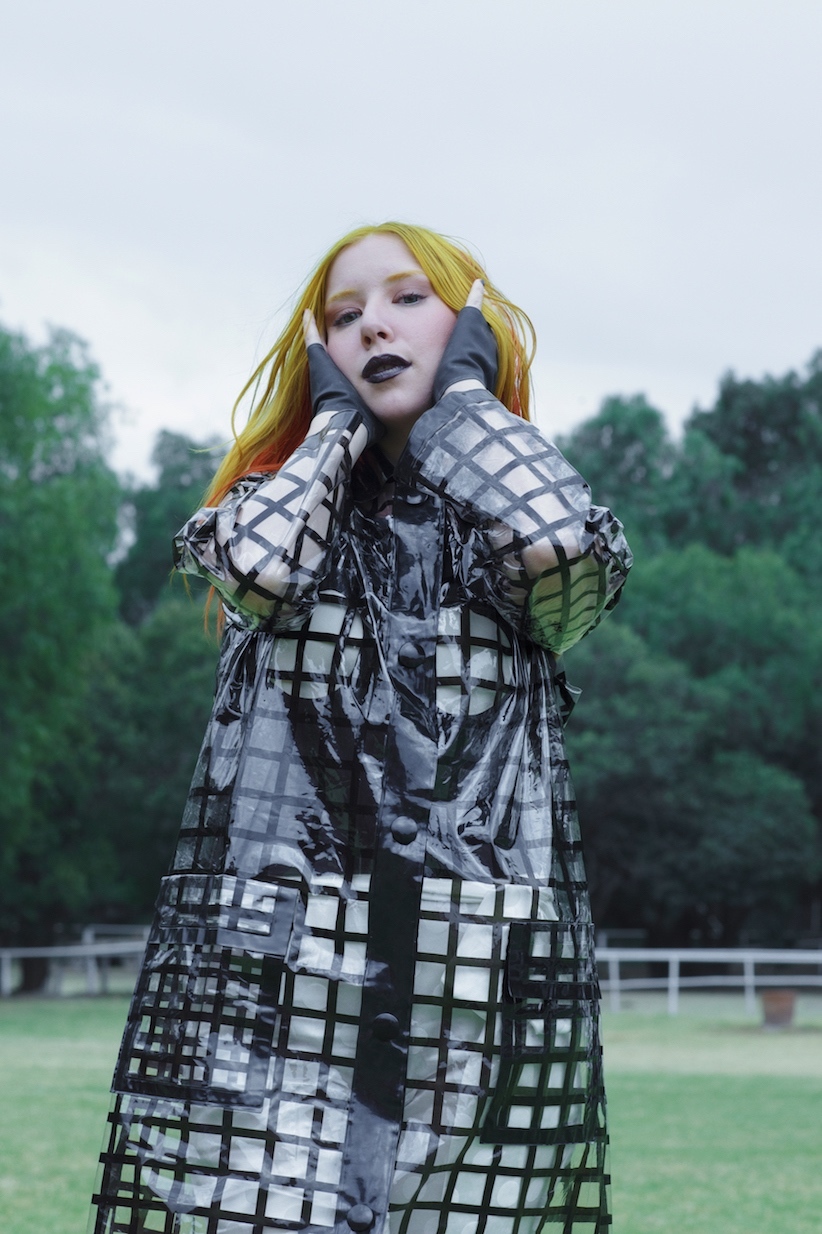“I just hope that when people listen to it they’re able to feel that they’re not alone, and that somebody else is having the feelings that they’re having about how shitty things are,” explains Austra frontwoman and founder Katie Stelmanis of her current release Future Politics (Domino). Written in Montreal and Mexico City, the album is a stunning and atmospheric meditation on overcoming the potential dystopia. Stelmanis’s two previous albums include the darkwave electro-pop release Feel It Break (2011) and Olympia (2013). Now we see Stelmanis look into the future where individuals unite across boundaries to shape change.
The album reverberates with a sense of optimism. Across a pulsating collection of tracks, Stelmanis’s vulnerable vocals are carried over sweeping soundscapes of energetic beats. “Doctor, what’s the cure for apathy?” she sings over a steady synth beat on “We Were Alive” while on tracks like “Angel In Your Eyes” we are led into a throbbing dancefloor trance. We recently spoke with Stelmanis about writing the album, sci-fi influences, and electro-cumbia.
You started writing the record when you moved to Montreal. What influenced your ideas for it?
When I was in Montreal, it was kind of a shock to the system to be there and be isolated and alone. I was there mostly in the wintertime and Montreal in the winter is a very freezing and dark place. I was alone a lot and spent a lot of time working on music, reading and trying to absorb as much information as I could. I got really obsessed with reading – the first book was Naomi Klein’s This Changes Everything – which got me onto the subject of capitalism and the climate in general.
I became obsessed with reading about capitalism, neoliberalism and climate change, and because those are very depressing things to read about, I was able to bring myself out of those feelings of hopelessness through reading about the future. I got addicted to reading anything that had to do with the future – anybody writing about post-capitalism and even sci-fi or feminist sci-fi.
Can you tell me about reading Manifesto for An Accelerationist Politics and how it shaped your hopeful vision of technology’s future?
I was super inspired by the Accelesterist Manifesto and the guys [Alex Williams and Nick Srnicek] who wrote that went on to write this book called Inventing the Future: Post Capitalism in a World Without Work – and that book and that manifesto inspired the song “Future Politics” and shaped the theme of the record. They have a plan for the future that is not this dystopia that we are kind of heading towards at this moment. The whole theme is that technology will free us from the constraints of capitalism because it will create an elimination of scarcity and eliminate the need for human labor through automation. They’re saying that capitalism was great for getting through a certain age in technology but at this point I feel like capitalism is hindering technological development because it’s about the bottom line rather than really inspiring human innovation. Once finance becomes a non-issue, I think the potential for technology can be way more surreal and outrageous.
Did you do most of your writing in Montreal?
I was traveling a lot when I was writing this record, partly because I was still doing some touring and partly because I’m addicted to moving. I started it in Montreal and then wrote a huge chunk of it in Mexico City, and then between Toronto and New York. The record started out as quite depressing in Montreal and when I moved to Mexico it changed the direction of it, and that’s when it started to become more optimistic in its tone.
How did being in Mexico change its tone?
I was there for six months. I was coming from Montreal which is cold and dark and I moved to Mexico which was sunny, warm and colorful. It’s crazy how much that will influence your mindset on a very basic level.
Were you listening to anything in particular that added to this album’s soundscape?
The first influence for me was actually Massive Attack because we played a show with them somewhere in Belgium, and I had never really listened to them before but stuck around and watched the show. It blew my mind, so I bought their entire back catalogue and got obsessed with listening to it. When I was in Mexico, I was introduced to electro-cumbia which was an entire genre of music that I didn’t know previously existed. I was introduced to all these Latin American producers who were making this amazing music that definitely influenced the songwriting style.
I love your idea of radical hope and moving beyond boundaries. Can you tell me more about this?
When I speak about going beyond boundaries it’s because I really see the importance of being able to change the way people think. In order to change the way people think, you have to have these conversations and really talk about the potential for the future. There’s so many fabrications in our world right now, so many limitations of possibility that just don’t need to be there and I think that once people start realizing how many of our social constructs don’t need to exist, then the possibilities for what kind of world that we could be living in are pretty endless.
Credits
Text J.L. Sirisuk
Photography Renata Raksha, courtesy the artist
